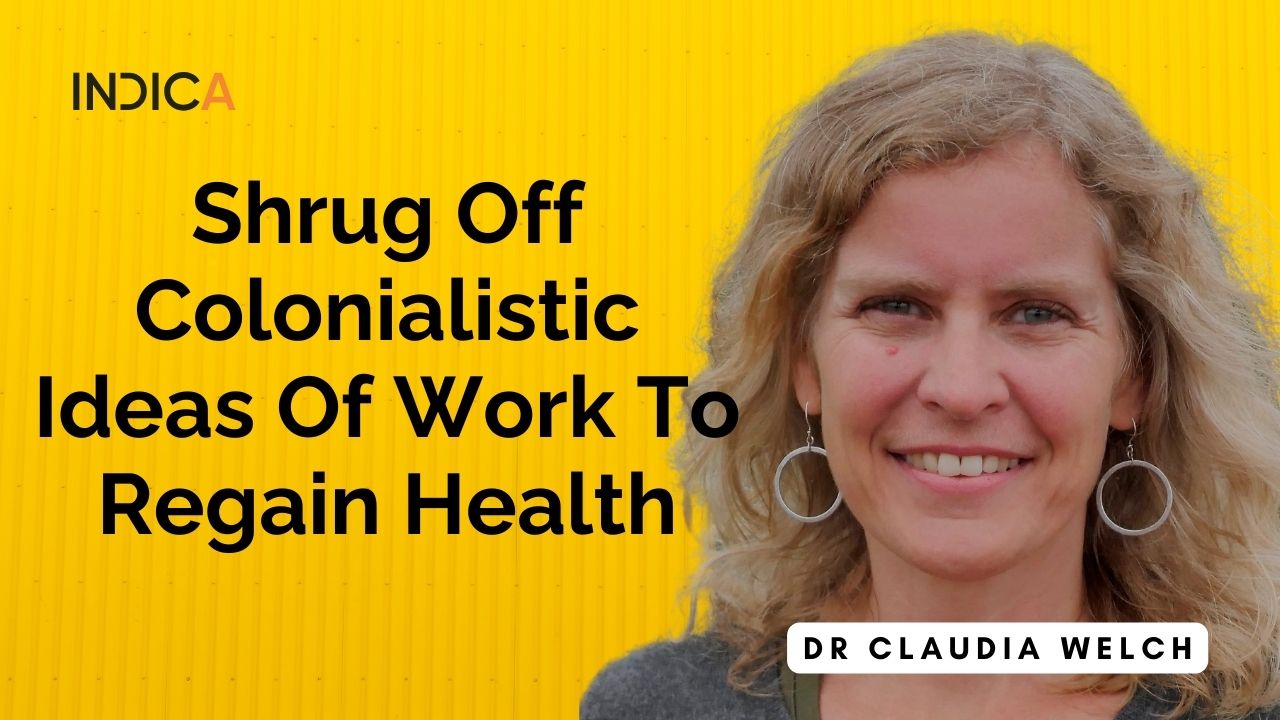At the age of 20, Arun Deva set out to live his American Dream. ‘Yoga and Ayurveda would enter my life much later, only after long-term poor living had taken a toll on my health. I desperately needed to heal, physically and mentally, and it was only then that I turned to the Vedic sciences for healing. In this sense, Yoga and Ayurveda have been my guardian angels.'
Arun went on to study Ayurveda from the American Institute of Ayurveda and later founder Arunachala Yoga and Ayurveda. Arun is an Ayurvedic practitioner and Yoga Therapist. He is currently heading NAMA’s Committee for Ayurvedic Yoga Therapy.
What were your early experiences with Ayurveda and Yoga?
“Back in 1972, I was a short, skinny Indian hippie, who had little interest or knowledge of wellness”. When I landed in Germany I had long, curly hair, a mustache, shirt open midway with a gold chain. It was obvious I would be pulled over and checked for drugs. What I remember most though were the two Marines in the room. They seemed impossibly tall and still and I wondered how I would fit in America when I finally landed there if this is what its people were like. But the promised land of sex & drugs & rock’n’roll turned out to be all those things, along with the depression, isolation and escapism they were built of…until years later I found myself in a hospital bed, narrowly escaping death and realizing I had to change my ways. This was just not working. On any level.
And Yoga and Ayurveda answered my prayers, and I took to them as a fish takes to water. They offered me both health and peace of mind, neither of which had meant much to me before. So the role Ayurveda and Yoga have played in my life is of saviors and in the process, I have learnt the value of passing on what you learn. If it is of value, people will benefit and that is quite a reward if you think about it.
A lot of your practice and teachings revolve around emotional and psychological wellness. What do Yoga and Ayurveda have to offer in this regard?
If we look at how Patanjali defines yoga, we see that he defines it as a pathway for achieving absolute clarity of mind. When we look at the biology of emotions, they are molecular in structure and affect the mind-body complex in such deep ways that their wellbeing leads to our physical wellbeing and vice versa. While the psychological nexus revolves around how our minds function, there is no getting away, anymore, from how our thoughts, ideas, feelings, and emotions affect our body.
In Ayurveda, health is defined as the balanced and efficient function of the constitutional humors (dośa), metabolic function (agni), bodily tissue maintenance (dhatu), proper function of waste faculties (mala), energetic functionality (kriya), activating a state of higher intelligence (ātma), balanced senses (indriya), balanced thoughts and emotions (manaha) all working harmoniously with each other. This is quite different from the reductionist approach of medical science; although to be fair, many in that field are now beginning to embrace this holistic approach. So, when I see a patient, I keep in mind that their emotional state will greatly impact their recovery and if I can connect with them there, the chances of their recovery are exponentially increased, but really, in more ways than they expected! It’s like being able to give your patients an extra gift. And they will need it if they are to continue to stay healthy.
How can Ayurvedic dietary habits affect our emotional wellbeing?
Who we become is dependent on the energetic, not just physical qualities, of the food we eat. There is a fascinating, though disturbing, book by Chef Mark Bittman, that, in great detail, mourns the descent of what we eat from animal and plant to junk. It’s very apt as to our current eating paradigm. If it is true that we are what we eat, then we are becoming junk! Changing our diet to a wholesome, unadulterated, unprocessed, freshly prepared one, with food grown by nature not mechanically with industrial herbicides and pesticides, and even worse chemical spray. Even fewer animal products, now that they are endangered or entrapped, and Ayurveda has never promoted the eating of animals brought up strictly for food. If we are immune to the suffering of animals and plants, we ingest their suffering, and it becomes ours.
Further, Ayurveda divided food up into taste (there are six), energy and post-digestive effect. Collectively this science of food is called Rasa, Virya and Vipāka. It tells us that food must be tasty. But since our tastes themselves are influenced by habits, this can be tricky. For instance, when we are in balance, we crave what keeps us in balance and when we are out of balance, we crave that which takes us away from our health; therefore, we have to eat not just by how the food tastes but what is its energetic effect upon us. And even further, how did the meal sit overnight? If we can answer all of this in a positive way, we are eating for health. And enjoying it. Also, when we eat healthily, we tend not to overeat, and instead of feeling stuffed and uncomfortable (think emotions too) we feel content. And that is a goal we would do well to remember as the gold standard of emotional health.
What is the connection between the trigunas (tamas, rajas, and satva) and the doshas (kapha, pitta, vatta)? How can one balance them through eating habits?
Love this question! There seems to be a tendency to connect vāta and pitta with rajas, and kapha with tamas. Apparently, this is also in some later texts of Ayurveda. I find this misleading. Any of the doshas can connect with Sattva. Or be disturbed by either or both rajas and tamas. In fact, rajas and tamas are known as mānasika dosha. It is better to think of the connections as vectors. Where the dosha intersects with the guna.
The whole goal then would be then to connect with Sattva. To connect them with diet, in of itself, is not enough. You can eat very healthy and still be emotionally off. This is why it is better to start with the emotional body for the healing process. Obviously here I am not referring to recovery from serious disease processes, where diet may have to come first, from this point of view. But in general, in Ayurveda, we begin with sadvrtta: proper lifestyle, followed by dinacarya and rtucarya and only then do we address diet. If we follow this protocol of healing, we are better able to secure lasting health and happiness. So, yes, begin by trying to move your dosha/s into equilibrium with Sattva, the guna that does not disturb the mind.
How have your students and clients responded to the idea of Ayurvedic psychology? Is this taught academically in universities across the USA?
I am not sure there are any specific courses taught in Ayurvedic Psychology. I am not even sure that exists as a stand-alone category. In fact, we could make the case that Ayurvedic Psychology is comprised of three complex approaches:
- Daivyavyapraśraya: Divine Therapy
- Yuktivyapraśraya: Medicinal & Rational Therapy
- Satvavajaya: Psychotherapy
From this we can see that Ayurveda foretold two of the pathways practiced today: psychiatry and psychology. The first which deals with the deeper states of mind is being rudimentarily touched upon today in the field of contemplative psychology. I believe much of Buddhist Psychology cross references these three and I am sure they influence and are influenced by each other. The last, satvavajaya also closely resembles pratipakśa bhāvana, the ultimate yogic tool for healing the negative mind. I share all of these tools with my students, more as an educator, and I feel that is really what we need to do psychologically: teach and guide people on their pathway to self-healing. So far, it has been mostly successful, and I lay that at the feet of the masters who showed us the way. There is great wisdom in the past.

How can Ayurvedic eating and lifestyle be practiced to maintain a calm and balanced emotional state during these stressful times of the pandemic?
First of all, we can find precedence in Ayurvedic texts to pandemics. In the revered Caraka Samhita, there is a chapter on epidemics/pandemics called Janapada Udhvāsana which can be interpreted as the chapter on Appearance and Spread of a Pandemic. In this he talks about finding the most potent and fresh plants we can, and using them, either as medicine or food, to protect us. Obviously, it is simplistically dangerous to think of diet as a cure for the pandemic. However, as an adjunct, eating fresh foods, organically (naturally) grown in fertile soils; can help build a healthier immune system. And if you should find your system compromised, especially your digestion, then soups, stews and the always healthy khichari are the best way to nourish yourself. Soups and stews in addition to assisting a weak digestion are also nourishing to a worried and anxious mind. They are like foods for the soul.
Feature Image: Mareefe





